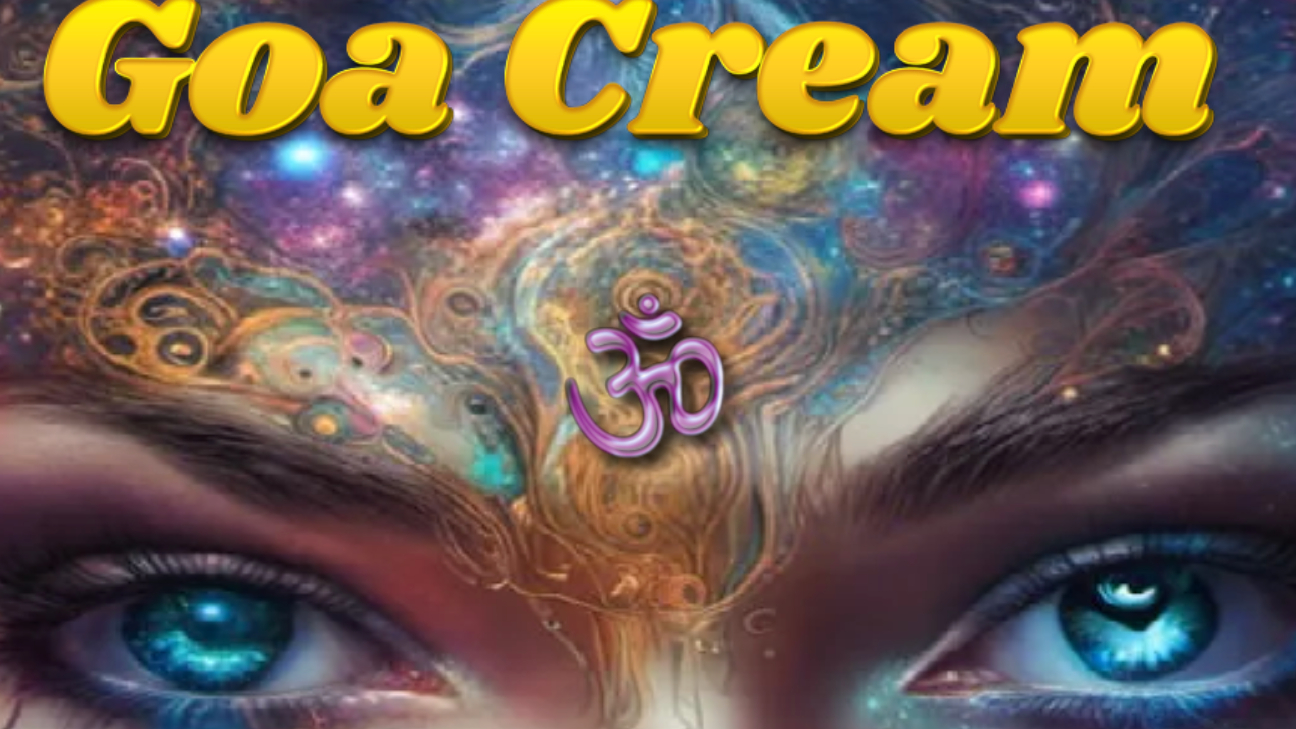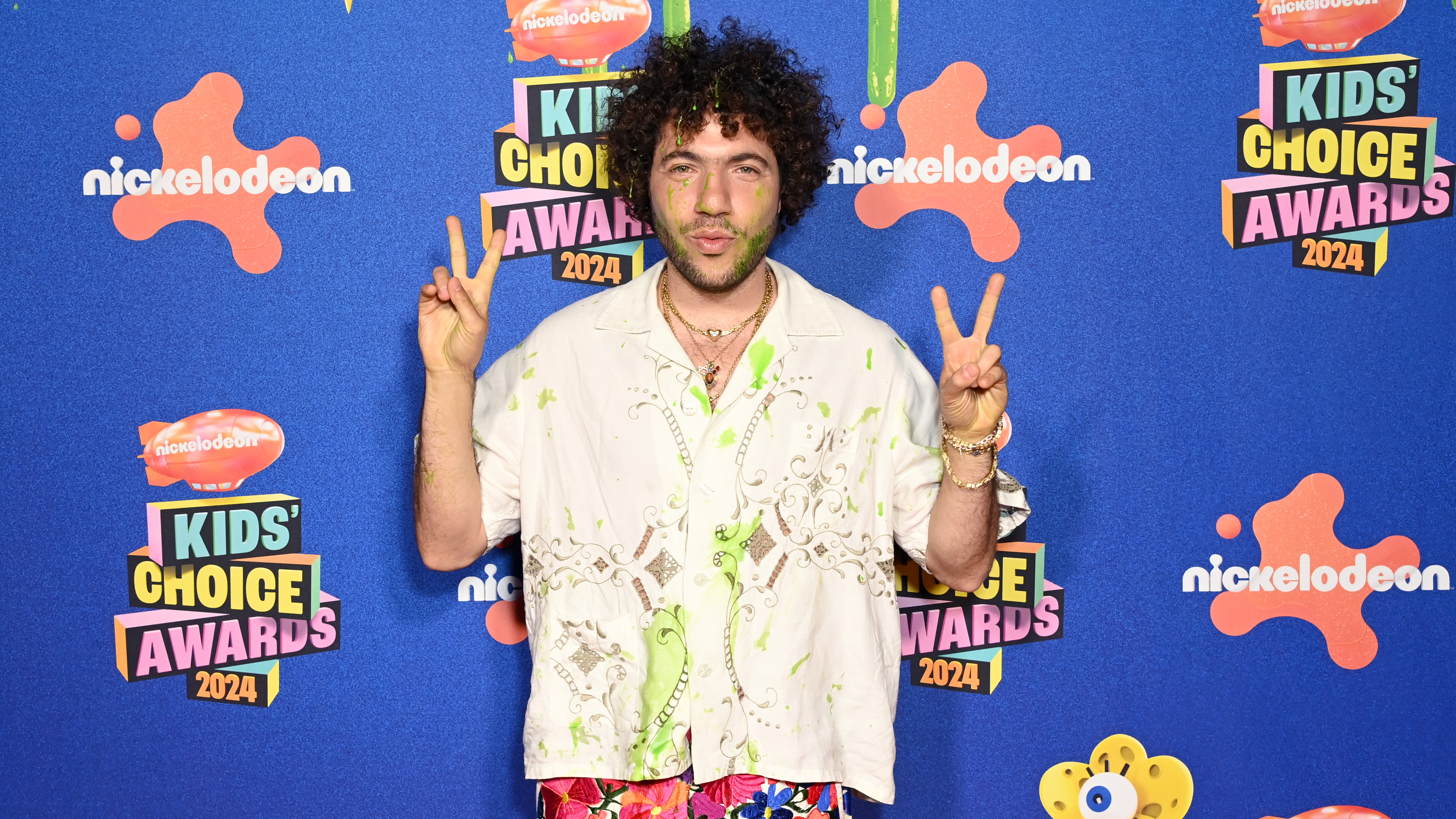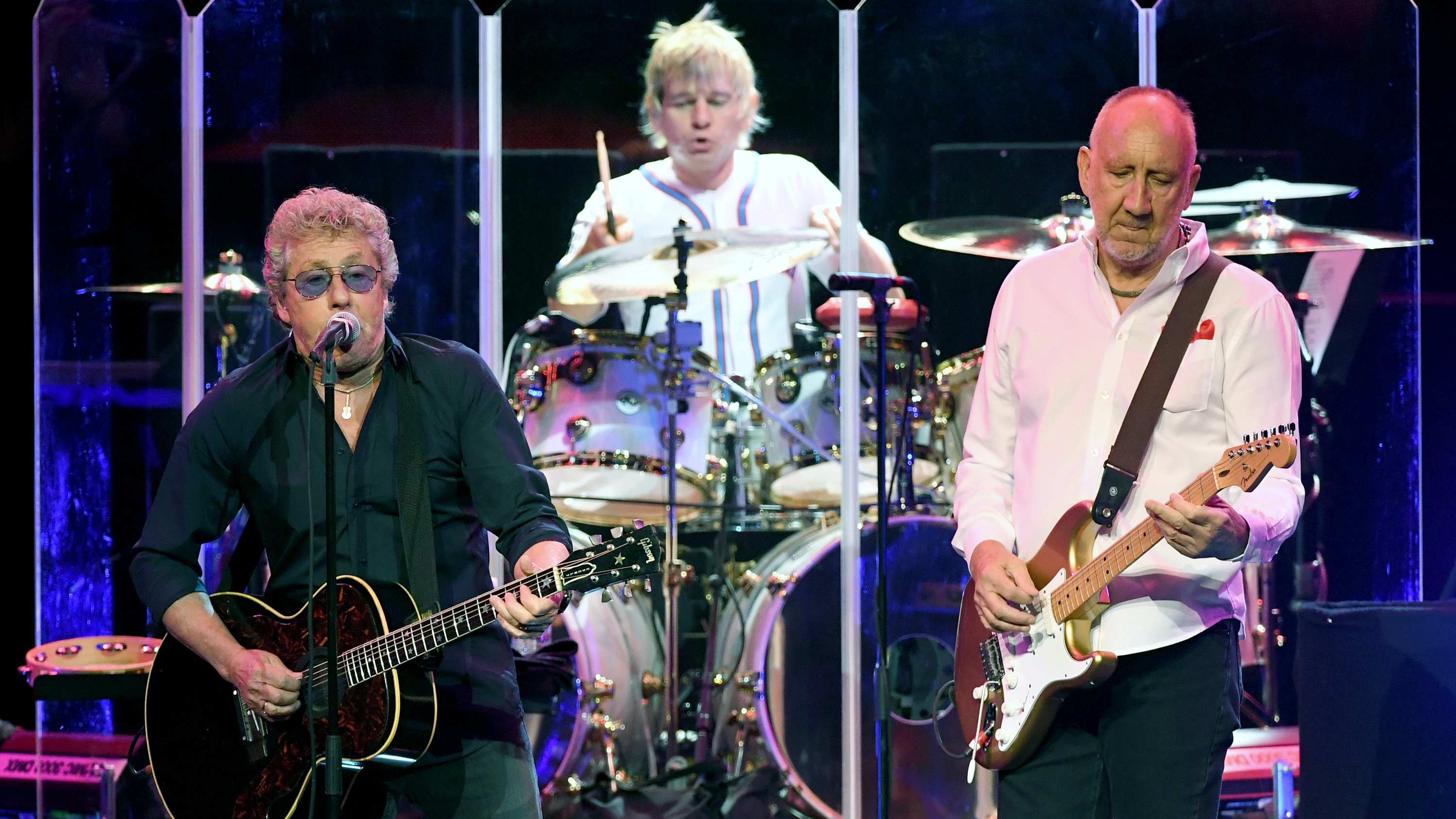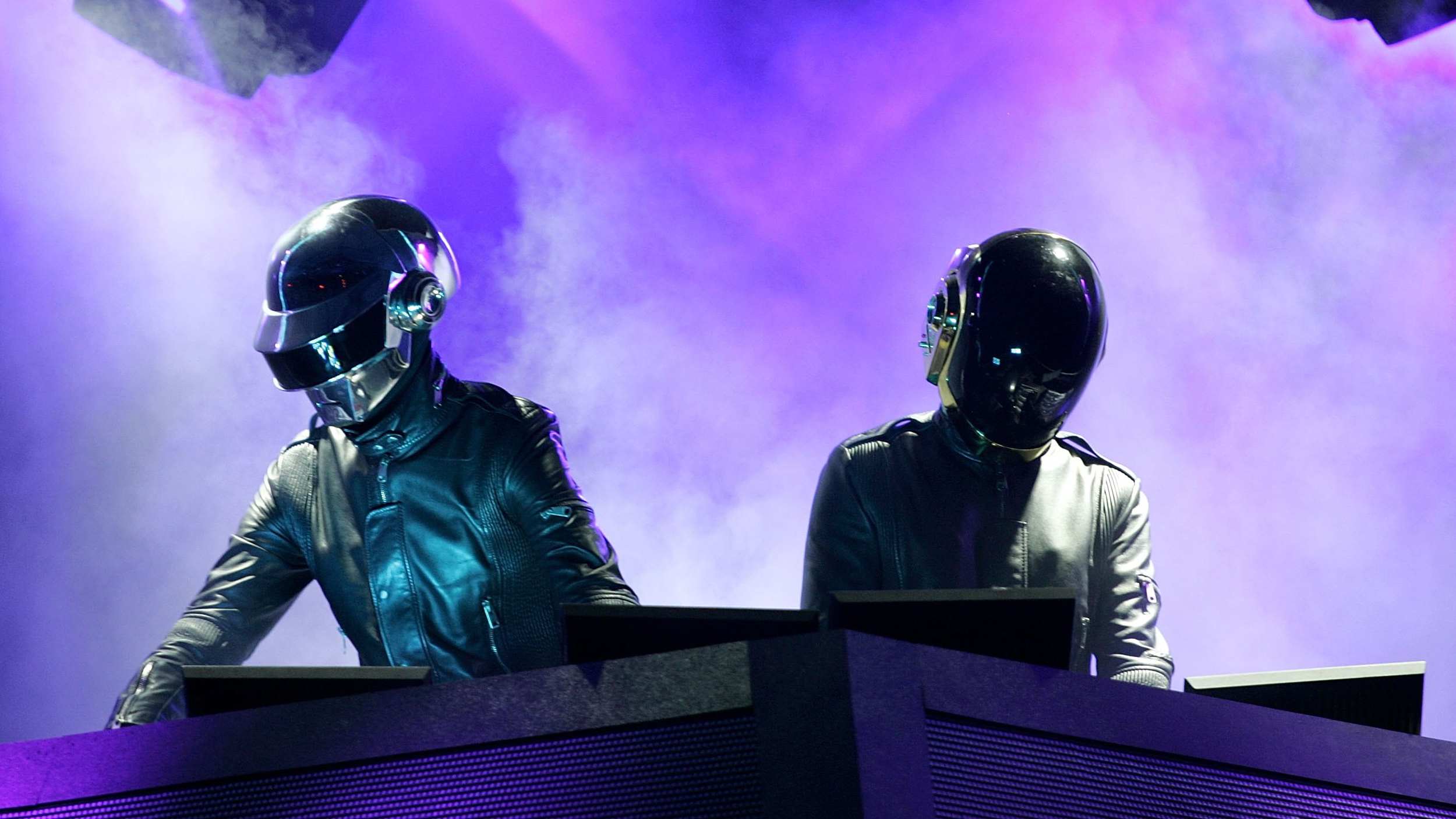Lady Antebellum's Dave Haywood: “I live and die by making sure those guitar parts are right”
Country guitarist discusses recent album Heart Break
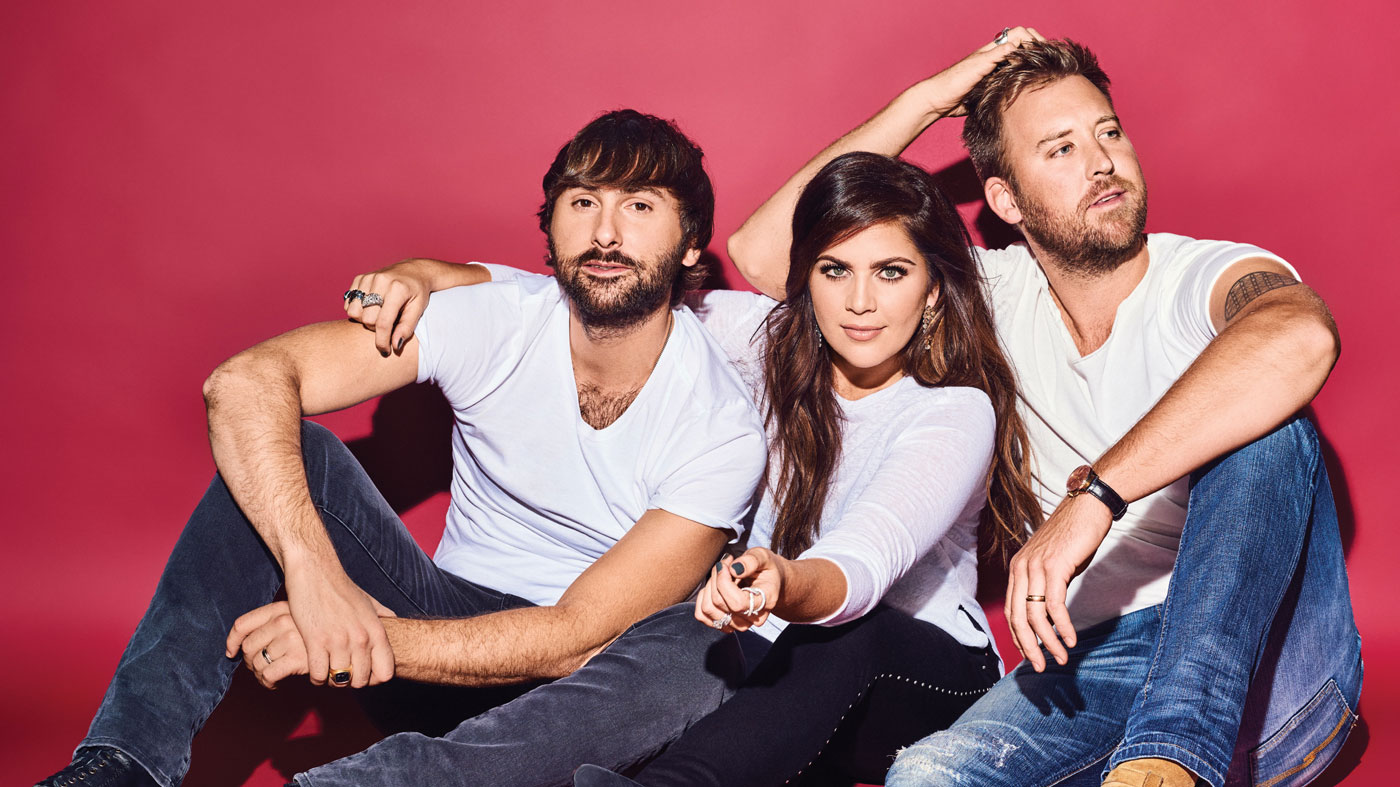
Giants of modern country, Lady Antebellum return to these shores this autumn on the heels of yet another Billboard-smashing album. We checked in with their resident guitar whizz, Dave Haywood...
Before discussing recording, gear choices and his formidable acoustic collection, when chatting about his part in the already best-selling Heart Break, Lady Antebellum’s Dave Haywood is eager to reassure those grammatically-minded readers perplexed by the wording of the title. “It’s two separate words: i.e. giving your heart a break! Honestly that is really part of the larger theme there. That is, that we had to give our hearts a little bit of a break.”
If any band deserves such a break, harmony-driven country trio Lady Antebellum - featuring Hillary Scott on lead vocals, Charles Kelley on BVs and guitar, and Dave Haywood on guitar, piano and mandolin - certainly qualify.
Six albums, countless Grammy Awards and a clutch of the decade’s most hummable radio hits in their collection, as Haywood explains, the recording of Heart Break saw the band take a step back from the touring juggernaut and head back to basics - taking their time to revisit the winning formula of fun, friendship and creativity that kickstarted the whole thing. Luckily for gear-lover Haywood, that new approach also meant indulging in a world of new acoustic sounds. We found out more…
How would you characterise this album compared to your previous ones?
“It’s hard to exactly pinpoint but I do know that the process is different to any we’ve had in 10 years. When we were touring a couple of years ago, we got together and said, 'how should we approach making the next album?'. Having a creative break and coming back, we decided that if we could get back to the way we started the band it could benefit us. So we decided to go live in a house again just like we did when we started the band. Being together and writing all day long, we had each other’s undivided attention.
“We wanted to get back to that. So we rented a house in Florida and wrote all day for a couple of weeks. Made breakfast together, laughed, wrote songs, stayed up late drinking, all kinds of good stuff. It was a lot more organic and authentic to us. We wrote a lot more songs than we’ve ever written for this album; 11 of the 13 songs are ones we wrote. We really took time with it, more than we’ve ever done. Musically we pushed it a lot with horns and other stuff as well. Lots of fresh new sounds for the band.”
Get the MusicRadar Newsletter
Want all the hottest music and gear news, reviews, deals, features and more, direct to your inbox? Sign up here.
Family focus
You’ve said you had as many as 1,000 new potential tracks proposed to you for previous albums. Overwhelming! Did you have a clearer vision for this one?
“We took our time with this one. We wanted it to be right for us. We knew we had to include some personal stuff: there are quite a few songs about our spouses. One called Army, another one called Home, one about our kids called Stars.
“We wanted it to be really personal as well. I think when we’re being honest with ourselves is when we make our best music. Honestly, the title track really started to develop the theme (Heart Break). But we always want to include different songs. We love nostalgia, looking back. We also like songs that can be fun for the live shows.”
I try to stack a good number of acoustic parts: adding different capo positions to add different textures to the songs
You’ve played an impressive range of instruments yourself on it. Is that a pleasure for you as a musician?
“I can talk for hours about that. Everything in Lady A is really collaborative. Everybody working equally. We all have production ideas, but I do live and die by making sure those guitar parts are right. I love playing mandolin, adding in bouzouki parts - I love using open tunings on it, to provide those droning parts to the record.
“I try to stack a good number of acoustic parts: adding different capo positions to add different textures to the songs. Gosh, I spend all day thinking about and working on that. Banjo too. I’m not a super-proficient player, but just good enough to add some parts onto the choruses, stuff like that. And so, between all that, I’m obsessed with acoustic guitars.”
What’s your favourite guitar to play?
“I always play a 1930 Gibson L-00, my favourite. I play that on most of the songs, but this year, when we went to the studios in California, the owner let me play his pre-war Martin. It was unbelievable. I’ve never even touched one. 1940/1941. I can’t even remember when it was and that’s the holy grail. So a lot of this record was played on that.
“It was a real honour, I’m so grateful to the owner, Oliver! He was so nice to let me do that. That thing sounds amazing with a microphone in the room. A lot of the time you’ll work with a producer and they’ll work with an archive. Paul Worley who worked with us on the first record was the one who really turned me onto the old vintage stuff. The 50s Gibson standards and jumbos and the super old L-0s from the 30s.”
On the road?
“I’m all Gibson on the road. I mostly play a J-200, a J-45 and then a bouzouki, mandolin and stuff like that. I love the sound of the Gibson and the look: the pickguard, the inlays and all the beautiful artwork on a J-200.”
What's your favourite track on this album?
“I really like playing some open tunings. Most of our stuff is standard. But American Honey and We Own The Night are open and it’s essentially a version of DADGAD but you get a Celtic sound. When I was able to do a solo on tour I would do some picking in DADGAD and it was one of my favourite things.”
Matthews on my mind
Which of your own influences have shaped Lady Antebellum’s work?
“There are a couple of standouts in my mind. I grew up a lot on James Taylor and his picking, and also Dave Matthews Band. They had some really neat, innovative chord formations. I’ve used some of those on our songs, for sure.
I learned about the melodies from the Beatles, the picking from James Taylor and my chord formations from Dave Matthews
“Of course the Beatles influenced everybody, but my dad taught me to pick along to Day Tripper and a lot of those songs with signature riffs. So I always wanted to find guitarwork with melodic parts from the Beatles as well. Not just the places where you try and fit in the most notes as fast as possible. I like to find a signature part - like on our song American Honey - that you can almost sing along to. So I learned about the melodies from the Beatles, the picking from James Taylor and my chord formations from Dave Matthews.”
So you’re not entirely country?
“I realised that as I was saying it! I grew up on a lot of country, classic rock, Southern gothic. I’m from Georgia. It’s the home of James Brown, the Allman Brothers. My favourite band of all time is definitely the Eagles. I love their group harmonies. Lady Antebellum have always been obsessed with vocal groups that do that, so Fleetwood Mac were another huge influence for us as well. And a lot of country. Reba Macintyre, Dolly Parton. Some of the 90s artists, but also some of the greats. You know, picking along with the old Merle Haggard stuff. I was always glued to the radio.”
What are some of the key ingredients of country, for those learning it by numbers!
“We try to just write about the things we’re going through. I think that’s why people have fallen in love with it - all around the world. What are the necessary ingredients? They have to be about everyday life. We don’t try to write about anything other than what we know. Our very first song, Need You Now was what made a global impact for us as a band. People want to hear about something that relates to them. It’s about that longing. We try to keep it authentic.”
Any hot tips?
“I’d tell people to check out Kelsea Ballerini and Brett Young - they’ve been on tour with us. But for me there’s also a guy called Ryan Hurd, who is also the co-writer on ‘You Look Good’, the first single from this record. Amazing songwriter, artist and singer. Last year I produced for some other acts. But right now I’m all Lady A! Living and breathing studio work.”

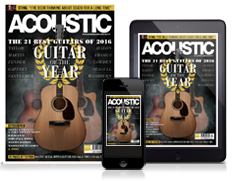
“Beyond its beauty, the cocobolo contributes to the guitar’s overall projection and sustain”: Cort’s stunning new Gold Series acoustic is a love letter to an exotic tone wood
“Your full-scale companion. Anytime. Anywhere… the perfect companion to your full-size Martin”: Meet the Junior Series, the new small-bodied, travel-friendly acoustic range from Martin



